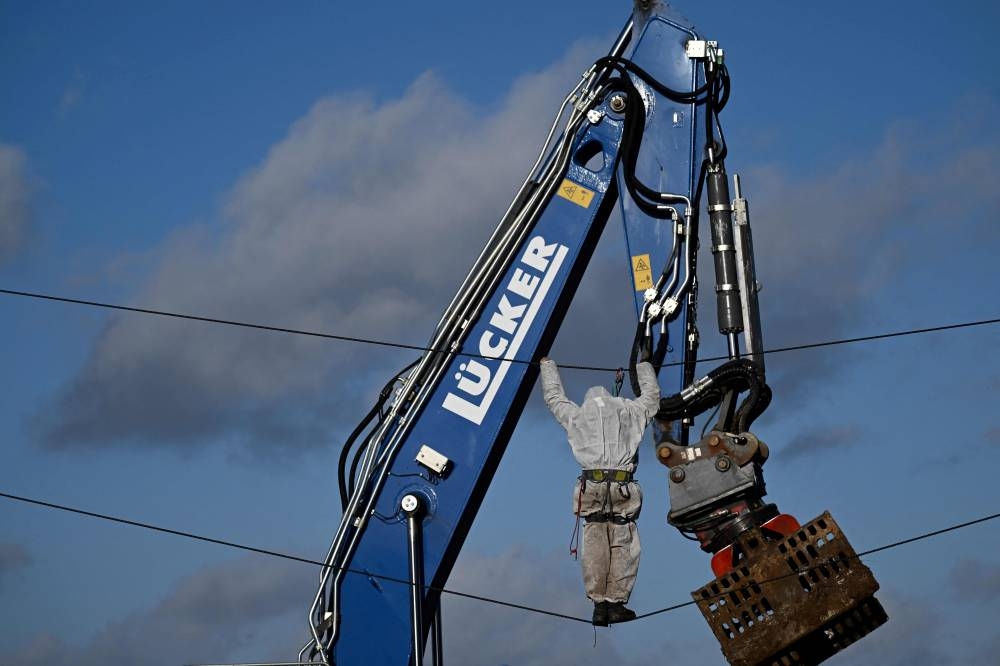LUETZERATH (Germany), Jan 11 — Hundreds of police began clearing climate protesters out of an abandoned village today in a showdown over the expansion of an opencast lignite mine that has highlighted tensions around Germany’s climate policy during an energy crisis.
The protesters formed human chains, made a makeshift barricade out of old containers and chanted “we are here, we are loud, because you are stealing our future” as police in helmets moved in. Some threw rocks, bottles and pyrotechnics. Police also reported protesters were lobbing petrol bombs.
The demonstrators, wearing masks, balaclavas or biosuits, have been protesting against the Garzweiler mine, run by energy firm RWE in the village of Luetzerath in the brown-coal district of the western state of North Rhine-Westphalia.
Police say the standoff could take weeks to resolve.
As the officers moved in, some activists perched on the roofs or the windows of the abandoned buildings, chanting and shouting slogans.
Others hung suspended from wires and wooden frames, or were holed up in treehouses to make it harder for police to dislodge them after a court ruling allowed for the demolition of the village now otherwise empty of residents and owned by RWE.
Police, who had water cannon trucks on standby, led away and carried some protesters from the site.
The project has underscored Germany’s dilemma over climate policy, which environmentalists say has taken a back seat during the energy crisis that has hit Europe after Russia’s invasion of Ukraine, forcing a return to dirtier fuels.
It is particularly sensitive for the Greens party, now back in power as part of Chancellor Olaf Scholz’s coalition government after 16 years in opposition. Many Greens oppose the mine’s expansion, but Economy Minister Robert Habeck of the Greens party has been the face of the government’s decision.

Heavy machinery
Birte, a 51-year-old midwife who joined the protest on Sunday, was in tears as police led her away.
She said it was important for politically moderate citizens to attend the protest, to show “that these are not just young, crazy, violent people, but that there are people who care”.
Police have urged the protesters to leave the area and remain peaceful.
“It’s a big challenge for the police and we need a lot of special forces here to deal with the situation. We have aerial rescue specialists, we have heavy machinery to deal with the barricades,” said police spokesperson Andreas Mueller.
“These are all factors that make it difficult to tell how long this will last. We expect it to continue for a least several weeks.”
RWE said on Wednesday it would start to dismantle Luetzerath, and had begun building a fence around the area.
“RWE is appealing to the squatters to observe the rule of law and to end the illegal occupation of buildings, plants and sites belonging to RWE peacefully,” RWE said. “Nobody should put their own health and life at risk by participating in illegal activity.”
The fallout of Russia’s invasion of Ukraine has prompted Scholz’s government to change course on previous policies.
Those include firing up mothballed coal power plants and extending the lifespan of nuclear power stations after Russia cut gas deliveries to Europe in an energy standoff that sent prices soaring.
The government has, however, brought forward the date when all brown coal power plants will be shut down in North Rhine-Westphalia, to 2030 from 2038, acceding to a campaign promise from the Greens. — Reuters






















